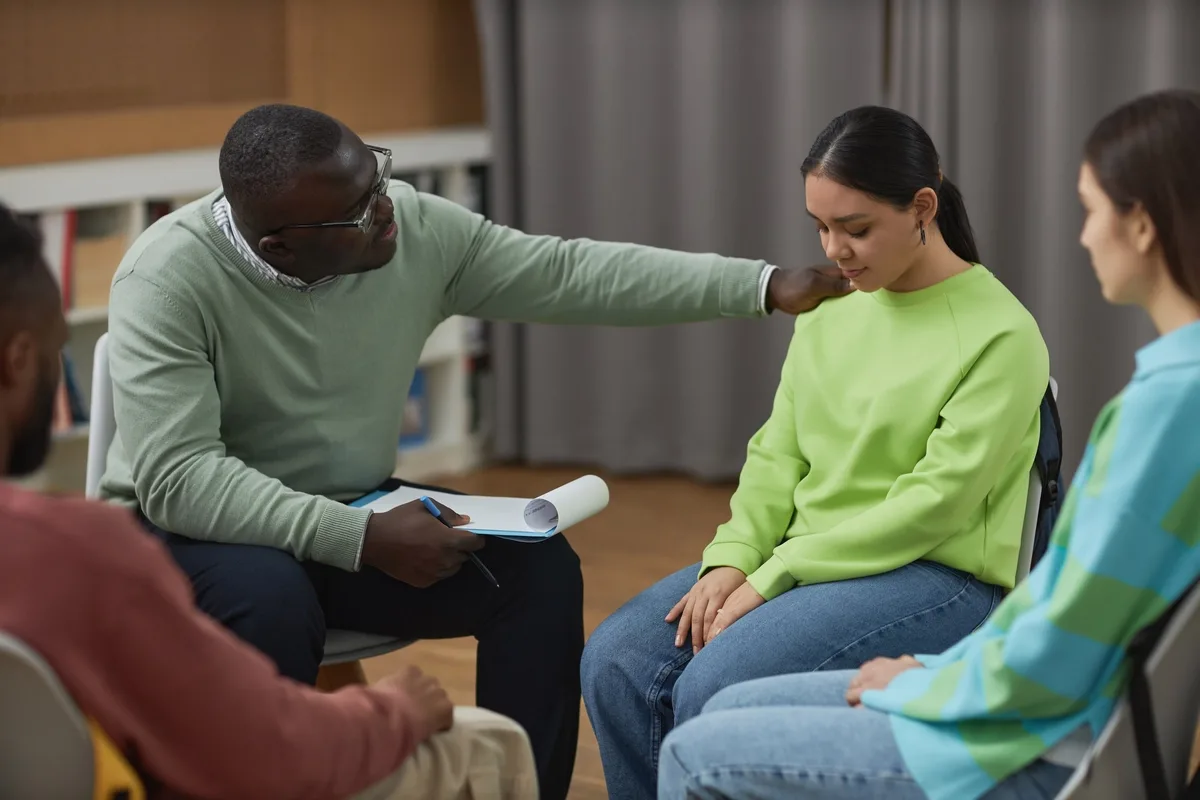24/7 Helpline:
(866) 899-221924/7 Helpline:
(866) 899-2219
Learn more about PTSD Treatment centers in Lee County
PTSD Treatment in Other Counties

Other Insurance Options

CareSource

Magellan Health

UMR

Aetna

Absolute Total Care

MVP Healthcare

Cigna

Access to Recovery (ATR) Voucher

State Farm

Carleon

Sliding scale payment assistance

Health Partners

Anthem

Group Health Incorporated

Holman Group

WellPoint

Meritain

ComPsych

Providence

Coventry Health Care

Operation PAR
Operation PAR is a reputable dual-diagnosis addiction rehab center in Fort Myers, Florida for indivi...

Saluscare – Evans Campus
Saluscare - Evans Campus, located in Fort Myers, Florida, provides mental health and alcohol and dru...

WhiteSands Treatment Center
WhiteSands Treatment Center is an accredited drug and alcohol rehab located in Fort Myers, FL. Throu...

Teen Challenge of Southwest Florida
Teen Challenge of Southwest Florida is a faith led substance abuse treatment center in Fort Myers, F...

SalusCare – Ortiz Campus
SalusCare - Ortiz Campus offers outpatient treatment for individuals with alcohol and/or substance a...

SalusCare – Grand Avenue
SalusCare - Grand Avenue offers transitional housing services for individuals with alcohol and/or su...

Lee Memorial Behavioral Health
Lee Memorial Behavioral Health is a public rehab located in Fort Myers, Florida. Lee Memorial Behavi...

Omega Center
Omega Center is an alcohol and drug rehab center that provides addiction treatment services and beha...

Genesis Counseling
Genesis Counseling is a private rehab located in Fort Myers, Florida. Genesis Counseling specializes...

SalusCare – Cape Coral Campus
SalusCare - Cape Coral Campus offers outpatient treatment for individuals with alcohol and/or substa...

Aim Target Programs
Aim Target Programs is a private rehab located in Fort Myers, Florida. Aim Target Programs specializ...

New Season – Lee County Treatment Center
New Season - Lee County Treatment Center is a private rehab located in Lehigh Acres, FL. New Season ...

WhiteSands Alcohol & Drug Rehab Estero
If you reside in the Estero, Florida area, you have the opportunity to meet with a compassionate and...

Center for Life Transitions
Center for Life Transitions is a private rehab located in Cape Coral, Florida. Center for Life Trans...

Southwest Florida Women’s Rehab
Southwest Florida Women’s Rehab is here to help through faith-based residential programs and counsel...

Southwest Florida Men’s Rehab
Southwest Florida Men’s Rehab, part of Teen Challenge, is here to help through faith-based residenti...

Salus Care – Colonial Campus
Salus Care - Colonial Campus is a mental health and drug rehab service in Fort Myers, Florida. Servi...






































































Operation PAR – Addictions
Operation PAR – Addictions is a private rehab located in Fort Myers, Florida. Operation PAR – Addict...

AAR Counseling Services
AAR Counseling Services is a private rehab located in Fort Myers, Florida. AAR Counseling Services s...

Dry Palms Club
Dry Palms Club is a non-profit rehab located in Fort Myers, Florida. Dry Palms Club specializes in t...

Alcoholism Services
Alcoholism Services is a private rehab located in Fort Myers, Florida. Alcoholism Services specializ...

Omega Center
Omega Center is a private rehab located in Fort Myers, Florida. Omega Center specializes in the trea...

Abundant Life Massage Therapy
Abundant Life Massage Therapy is a private rehab located in Fort Myers, Florida. Abundant Life Massa...

Family Preservation Services
Family Preservation Services is a private rehab located in Fort Myers, Florida. Family Preservation ...

Coastal Behavioral Healthcare – FACT Team
Coastal Behavioral Healthcare – FACT Team is a private rehab located in North Fort Myers, Florida. C...

Alan Gruning and Associates
Alan Gruning and Associates is a private rehab located in Fort Myers, Florida. Alan Gruning and Asso...

After the Rain of South West Florida
After the Rain of South West Florida is a private rehab located in Fort Myers, Florida. After the Ra...

AA – Alcoholics Anonymous
AA – Alcoholics Anonymous is a non-profit rehab located in Fort Myers, Florida. AA – Alcoholics Anon...

Sovereign Health
Sovereign Health is a residential treatment center offering comprehensive treatment for mental healt...

Lutheran Family Services
Lutheran Family Services is a private rehab located in Fort Myers, Florida. Lutheran Family Services...

Heritage Center for Biblical Counseling
Heritage Center for Biblical Counseling is a private rehab located in Fort Myers, Florida. Heritage ...




























































































































